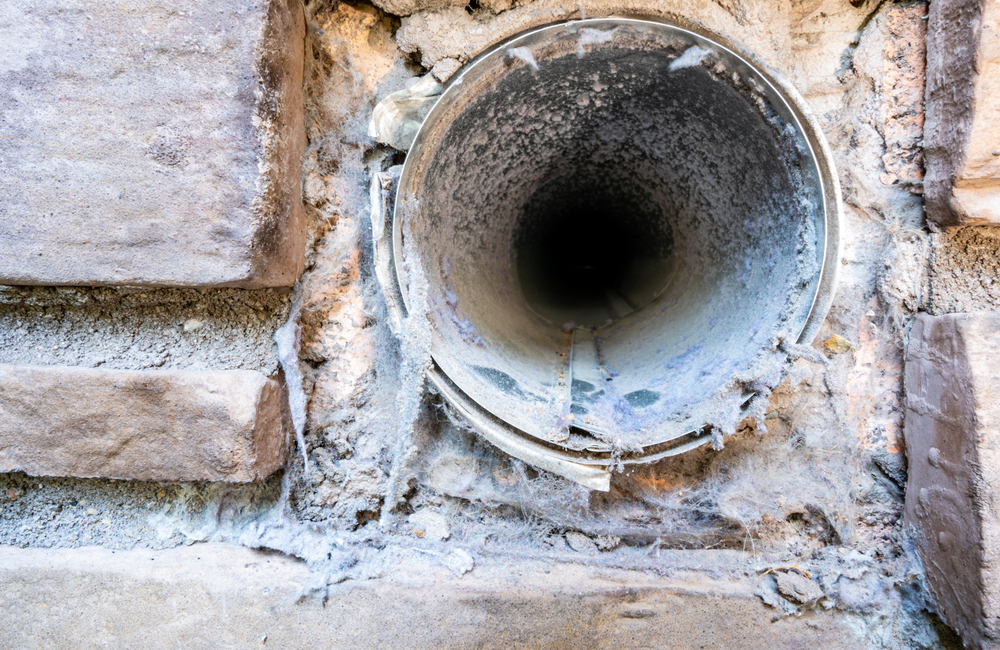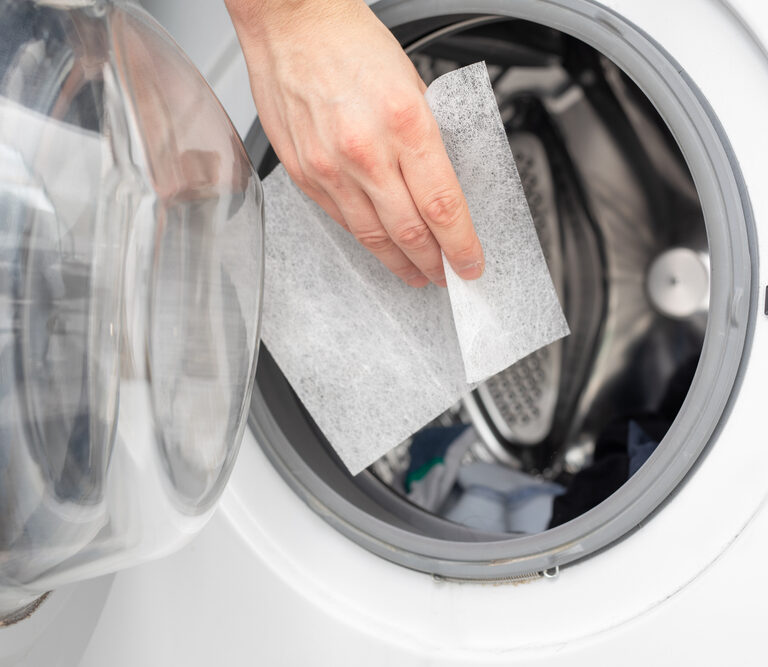Are you looking to buy a new dryer, but you’re not sure whether you should go with gas or electric? In this article, we’ll take a look at all the differences between the two. We’ll also show you how to find out what kind of dryer you have in your home.
Gas and Electric Dryer Fundamentals
It’s clear that what sets gas dryers apart from electric dryers is the fuel source each one uses. Because of this, you’ll need to make sure your home is properly equipped for whichever one you plan to choose.
For gas dryers, that means having a dryer exhaust vent and a gas line hookup. Electric dryers, on the other hand, don’t always need a vent.
Since electric dryers do not burn toxic gas as fuel, they come in both vented and ventless varieties. But in lieu of the gas line, electric dryers require a 240-volt outlet, which is a 3 or 4-prong outlet.
In either case, making the switch from gas to electric, or vice versa, is a costly decision.
How Do I Tell Which Kind of Dryer I Have?
Now you’re probably wondering how to tell what kind of dryer you have. Luckily, there are a few simple ways you can do this.
Method 1: Check Your Dryer’s Manual
If you happen to have your dryer’s manual handy, you can quickly figure out whether it’s a gas or an electric model.
Method 2: Search Your Dryer’s Make and Model Online
If you don’t have your dryer’s manual, you can use the make and model number to search for it online. You can usually find your dryer’s make and model number on a silver sticker placed on or near the door.
Method 3: Check the Plug
Another way to tell whether you have a gas or an electric dryer is by checking the outlet your dryer plugs into.
If the dryer connects to a 3-prong or 4-prong outlet, then you have an electric dryer. However, if it’s connected to a standard 110/120-volt plug, then there’s a good chance you have a gas dryer. To verify this, you should also check for a gas line with a shut-off valve somewhere behind the dryer.
Which Costs More: Gas or Electric Dryers?
Like all other appliances, the cost of a dryer is important to consider when shopping for a new one. There are three factors to consider when comparing the costs of gas and electric dryers: upfront costs, operating costs, and maintenance.
Upfront Costs
If you’re shopping for a new dryer, there’s no doubt upfront cost comes to mind. When comparing between similar models, gas dryers often cost more than electric ones. That said, there are a few exceptions.
First, the price difference between gas and electric dryers tends to shrink as the price goes up. At the low-end, expect to find gas dryers at around $100 more than electric models with similar specs and features.
It’s also important to note that there are two types of electric dryers: vented and ventless. Ventless dryers offer the convenience of not requiring a vent. But for that luxury, you should expect to pay at least $100 more than a vented dryer with similar features.
Installation is another thing to consider when calculating upfront costs. Assuming you already have the hookups necessary, electric is the cheapest and easiest. If you’re going with a gas dryer, however, you need a professional to hook the dryer up. This is the best way to ensure you don’t unknowingly end up with a gas leak.
Operating Costs
Operating cost is another difference to look at. Gas dryers are usually the cheaper of the two. This is because gas dryers are more energy-efficient, and get the job done quicker. Additionally, gas is often cheaper than electricity.
But there are some exceptions. For example, if you power your home with solar panels, you’ll find an electric dryer is cheaper to run than a gas dryer.
And of course, when you’re calculating operating costs, you can’t forget maintenance and repairs. Maintenance isn’t a fixed cost, but it can potentially tilt the scales on which one will cost you more in the long run.
Maintenance
With maintenance, electric dryers have a clear cost-advantage over gas dryers. While both forms of power have the potential to cause great harm, gas is trickier. That means that, unless you know what you’re doing, you’ll likely need to hire a professional to repair your dryer if it’s a gas model.
On the contrary, electric dryers are fairly simple to repair, even if you’re inexperienced. Aftermarket parts are also often readily available. This can help you save a great deal of money if your dryer ever breaks down.
You should also consider vent maintenance. Electric dryers have a slight edge in this department as well, since you can opt for a ventless dryer. Nevertheless, both vented gas and electric dryers require periodic vent maintenance.
Although the lint trap is there to catch lint before it makes it to the ventilation system, it’s not perfect. Consequently, bits of lint can accumulate in your vents over time. When enough lint accumulates, it can cause a fire.
For vent maintenance, you can call a professional to clean the vents for you. Or you can opt to do it yourself, if you have a drill and a dryer vent cleaning brush handy.
Which Dries Quicker: Gas or Electric Dryers
It is important to consider how a dryer can dry your laundry. Electric dryers take longer to heat up than gas dryers, meaning they take longer to dry clothes. The longer your dryer runs, the more time it spends consuming energy and wearing itself down.
But wait, there’s more!
Even though dryers are convenient, they’re actually harmful to your clothes. You know all that lint you find after drying a load of laundry? They’re all small fibers from your clothing.
Each time you run your dryer, the heat and agitation causes your clothes to wear down. This wear accumulates over time, and is ultimately what causes your clothes to fall apart. That means the less time you spend drying your clothes, the longer your clothes will last.
As such, gas dryers can help extend the life of your clothes, compared to electric dryers.

What Type of Dryer Is Safest?
Safety is another important factor to consider when choosing a dryer. While both gas and electricity are dangerous, electric dryers are the safer choice between the two.
With gas dryers, you need to make sure that your dryer has proper ventilation. Although a clogged exhaust vent is dangerous for both gas and electric dryers, using gas can lead to a buildup of noxious gases in your home.
Speaking of noxious gases, gas dryers also carry the risk for a gas leak. Gas leaks can cause carbon monoxide poisoning, and may lead to an explosion.
If you have a gas dryer, you might want to consider putting a carbon monoxide detector near it. This can help you catch a gas leak before you’re able to smell it.
Which Will Last Longer: Gas or Electric Dryers?
Well as it turns out there isn’t really much of a difference between gas and electric dryers in terms of life span. On average, both gas and electric dryers have an average lifespan of roughly 10 years.
Hung Out to Dry
When it comes down to it, the decision of whether to go with a gas or electric dryer is a personal choice. Gas dryers are more expensive upfront, but save you money in the long run and help maintain your clothes. Electric dryers are safer, give you more flexibility, and are easier to maintain.
No matter which one you choose, you can rest easy knowing you’re making an informed decisio
When it comes down to it, the decision of whether to go with a gas or electric dryer is a personal choice. Gas dryers are more expensive upfront, but save you money in the long run, and help maintain your clothes. Electric dryers are safer, give you more flexibility, and are easier to maintain. No matter which one you choose, you can rest easy knowing you’re making an informed decision.
